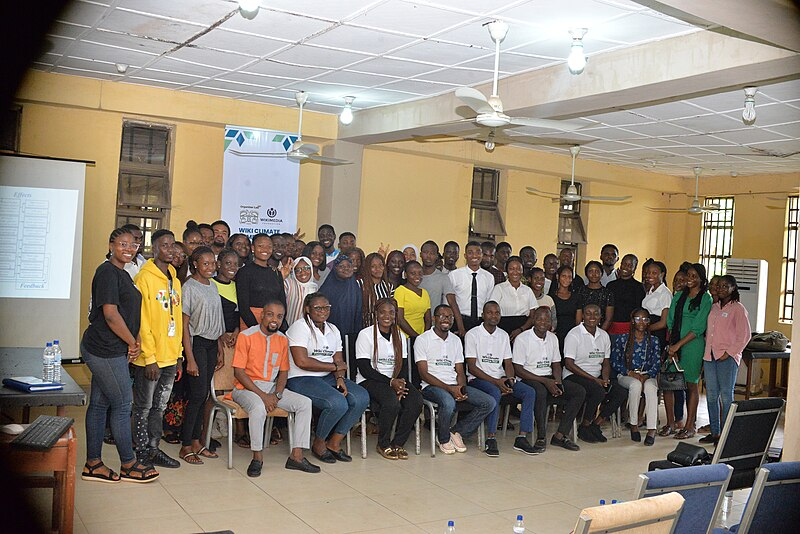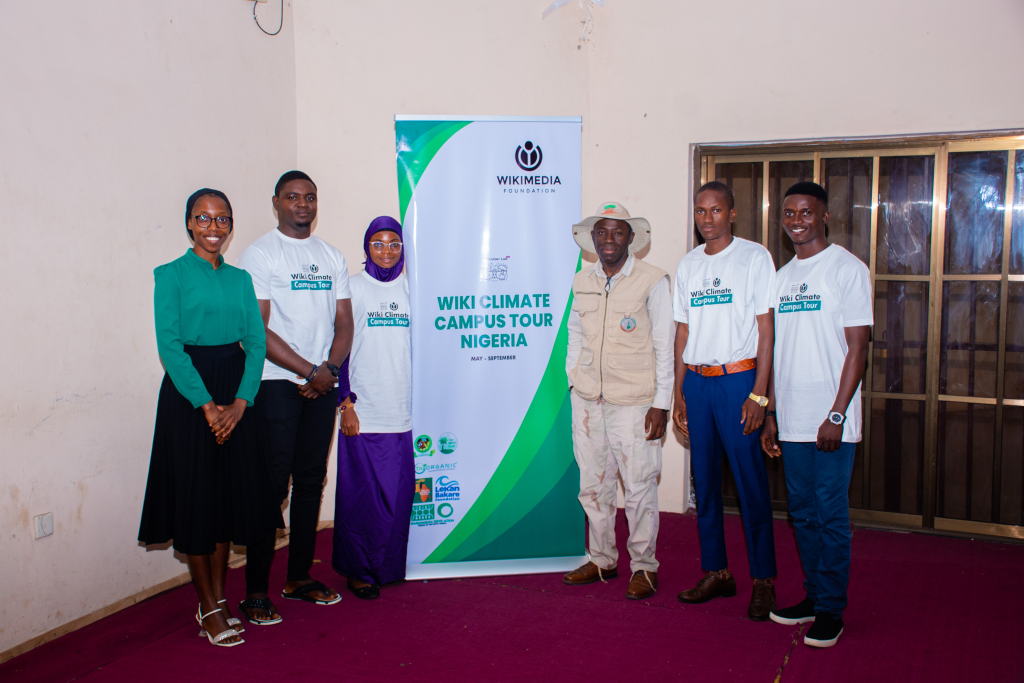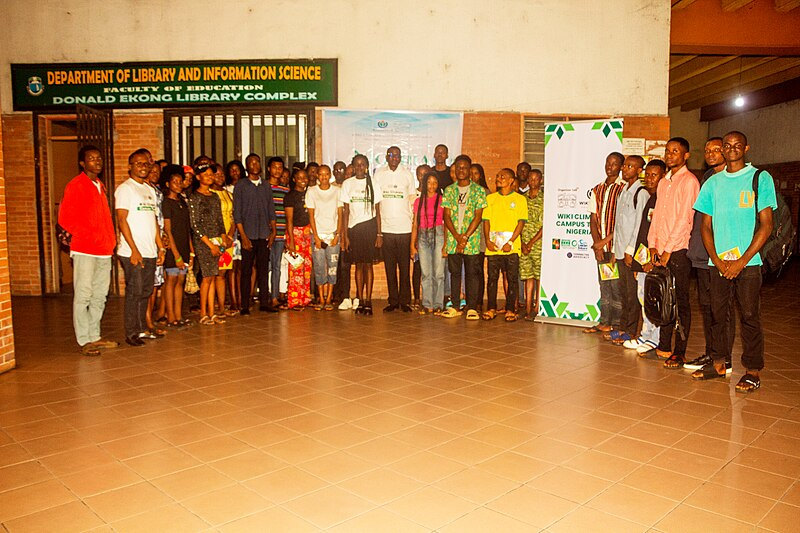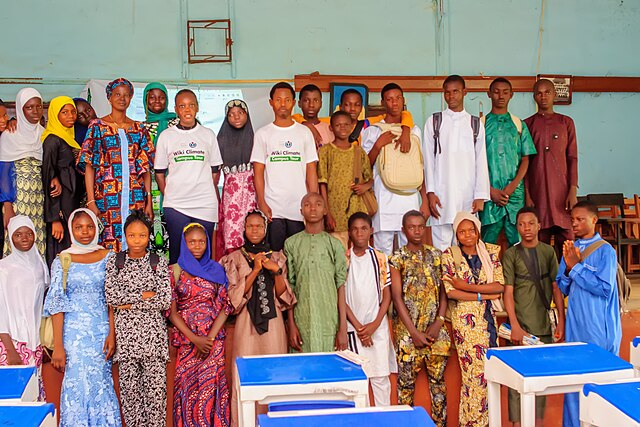The Wiki Climate Campus Tour Nigeria (WCCTN) project is a pioneering initiative with a threefold mission: to nurture a sustainable and open climate community within Nigerian universities, bridge local knowledge gaps concerning climate change and environmental sustainability, and empower young individuals to emerge as proactive advocates for climate action through education and awareness.
A major component and activity of the WCCTN project involved conducting panel discussions on climate change across six participating institutions in Nigeria, including the University of Benin, University of Port Harcourt, Federal University Kashere, Summit University, University of Ilorin, and the University of Ibadan. These discussions provided a platform for climate and environmental experts to engage in intellectually stimulating conversations with students from the above-mentioned institutions.
Panelists
The Panel discussion featured a minimum of two expert panelists in each of the participating institutions. The panelist include:
A. University of Benin
i. Melody Ifechi Enyinnaya (Project Officer, Waste Management -Evironmental Rights Action)
ii. Hannah Akpan (Friends of Earth Nigeria/Environmental Rights Action)
iii. Ebuka Onuoha (Chairman, Edo State SDG Network)
iv. Dr. Ekhorutomwen M-G (University of Benin)
B. University of Port Harcourt
i. Dr. Onyaqbodor Oghogho Peter (Environmental Consultant, Researcher and Member, Association for Environmental
Impact Assessment of Nigeria)
ii. Ms Delight Chigeru (Founder, Urgent Concern Environmental Initiative, Rivers State)
C. Federal University Kashere
i. Muib Shefiu (Fan Club Leader, Federal University, Kashere)
ii. Dr. Abdulrashid Sadeeq (Department of Geography, Gombe State University)
iii. Dr. Nazifi Sulaiman (Department of Geography, Gombe State University)
D. Summit University, Offa
i. Dr. Eric Alao (Lead City University, Ibadan)
ii. Dr. Kayode Omowumi, (Federal University of Agriculture Abeokuta Nigeria)
iv. Mr. Kehinde Ogunyale (Climate Journalist)
v. Mrs. Mohammed Mutiat Olaitan (Research Coordinator, Summit University, Offa)
E. University of Ilorin
i. Dr. Fola Babalola (Founder, Save Sahara and Associate Professor, University of Ilorin)
ii. Mr Hashim Ogunbiyi (President, Agbelere Practical Oriented Club)
iii. Mr Busari Jamaldeen (President, Green club, University of Ilorin)
F. University of Ibadan
i. Mrs. Olajumoke Olowookere (Founder, Waste Musuem)
ii. Tomoefe Jaho-kagbare (President, SDG Hub, University of Ibadan)
iii. Kehinde Aderogba (Safe Space)
iv. Balikis Adebisi (Plogging Nigeria)
Discussion
The conversation maintained a consistent structure in all six participating institutions, with a set of pre-determined questions and topics designed to steer the discussion. The topics covered encompassed the understanding of climate change, its impact on individuals, potential solutions, and the sustainable initiatives that young people could engage in to help in achieving a healthy environment. The detailed guiding questions and agenda for the panel discussion across the six participating institutions can be found here.
In summary, the event underscored the importance of climate change awareness, education, policy advocacy, and youth engagement in sustainable practices. It emphasized innovative solutions for local climate challenges, the role of social media and technology, as well as the significance of responsible waste management and sustainable transportation options.
Key Takeaways
Some of the key takeaways from the discussion include:
a. Fostering a healthy planet necessitates a shift in attitude from everyone, with a paramount emphasis on prioritizing the
environment.
b. Encouraging the use of renewable energy sources and implementing energy efficiency programs is of utmost importance.
c. The promotion of sustainable transportation options, such as bicycle usage in specific scenarios, is highly recommended.
d. Implementing comprehensive waste management programs within all communities is crucial, while simultaneously advocating
for recycling to minimize waste and combat the issue of microplastics in our oceans.
e. Event organizers, including Wikimedia organizers, should, whenever possible, refrain from using single-use plastic water
bottles, particularly in regions where recycling practices are limited. Instead, they should opt for water dispensers and
encourage participants to bring reusable water bottles.
f. Collaboration between youth and various groups with relevant authorities and organizations to organize tree planting initiatives
is vital.
g. Advocacy for environmental consciousness should be embraced by individuals of all age groups, and they should educate
others about sustainable environmental practices, guided by the principles of the 7Rs – Rethink, Refuse, Reduce, Repurpose,
Reuse, Recycle, and Repair.
h. The value of repairing what can be fixed rather than discarding it should be recognized.
i. Students are encouraged to join environmental clubs like the Students Environmental Assembly (SEA) to actively engage in
environmental initiatives.
j. Everyone must join forces to promote climate and environmental education by leveraging on open platforms such as Wikipedia and Wikidata
k. True change begins with each of us – we must lead by example and take responsibility for the environment.
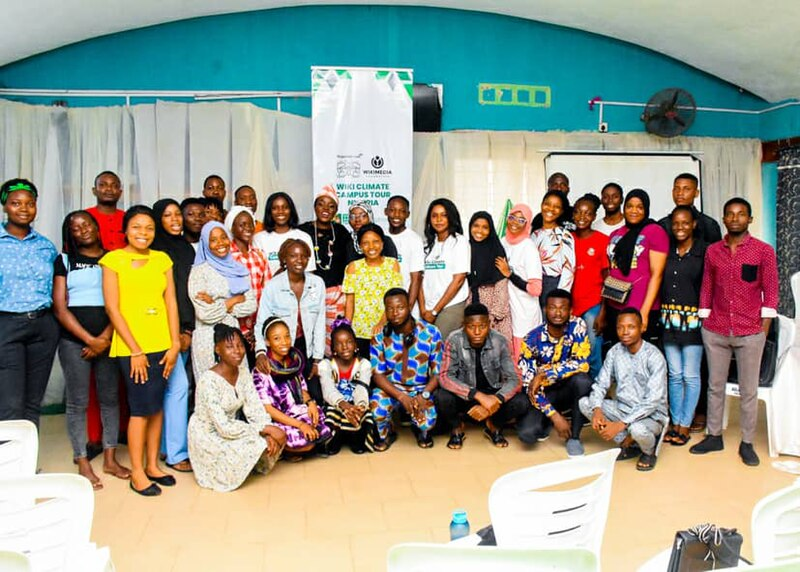
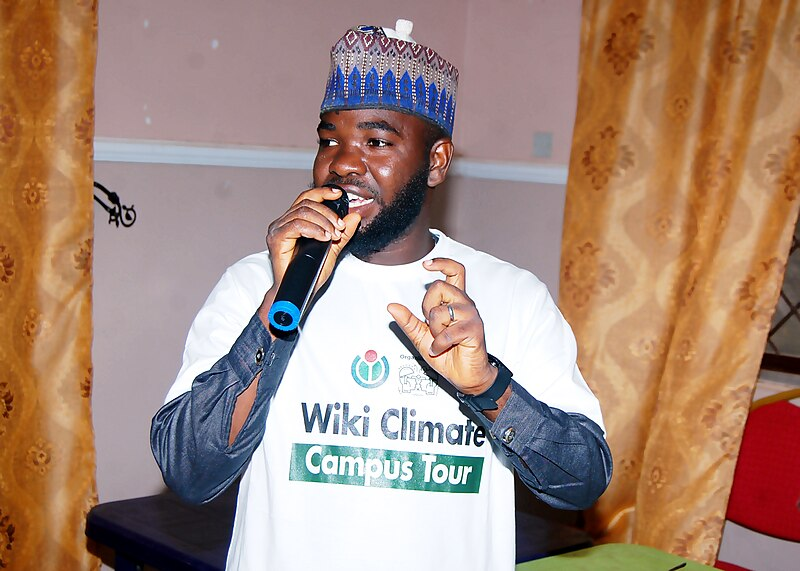
Conclusion
The resounding message surrounding the issue of climate change is that a sustainable future requires a united effort, where individuals, governments and organizations collaborate to safeguard our planet. As we navigate the challenges posed by a rapidly changing climate, we believe the insights shared from the panel discussion underscores the urgency of the situation and the collective responsibility that rests upon our shoulders.
Additional Resources from the WCCTN Project
- Project Documentation Page
- On-boarding Session and Virtual Trainings
- Project First Blog Post
- Insights on Project`s Participants
Meet the Project Core Organizers
Bukky658 (Project Lead and Facilitator) – is a fellow of Wikipedian in African Libraries, and the first Certified Trainer of the Reading Wikipedia in the Classroom program in Nigeria. She has led several projects in Nigeria and beyond. She is currently a Special Advisor for the Wikipedia +Education User Group, the Regional Liaison Sub-Saharan Africa, Lets Connect Team, and community coordinator for CfA WiR Community.
Omorodion1 (Co-Lead and Facilitator) – is an experienced Librarian and Wikimedian from Nigeria. He has organized and facilitated several Wikimedia events in Nigeria and beyond. Omorodion is a certified Wikimedia Campaign organizer and Co-founder of the Port Harcourt Wikimedia Hub. He has also published over 40 scholarly works in reputable outlets around the World.
Tesleemah (Program Coordinator and Facilitator) – is a Certified Wikimedia Campaign Organizer and a member of the Wikimedia Fan Club, University of Ilorin. She has facilitated several Wikimedia events in Nigeria.

Can you help us translate this article?
In order for this article to reach as many people as possible we would like your help. Can you translate this article to get the message out?
Start translation
